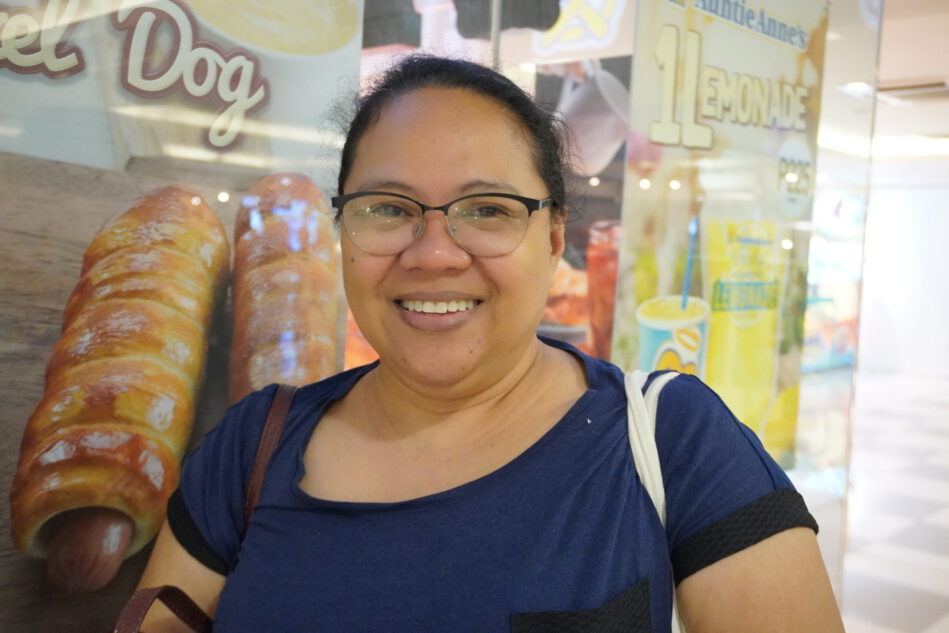This is part 3 of the Philippines series. You can find an overview here.
It is nothing other than pure coincidence. In a late-night research, I discovered Veronica’s nondescript profile on Twitter during the first days of the trip. I search for people who dare to publicly call themselves “activists” in the Philippines. In a country where climate activism couldn’t be more dangerous.
Two days later, we sat down for a conversation in one of the many shopping malls in Manila’s scurry. “My colleague, Gloria Capitan, who was among our community leaders in Coal-Free Bataan Movement, was killed in 2016 for her work. We still don’t know exactly who did it. She received some warnings from people who introduced themselves as emissaries of the company before that to stop her work, to stop her advocacy for communities.” Veronica’s narratives are stark, her voice full of passion. Listening to her, it seems natural: what else could a 50-year-old woman, a graduate of the Philippines’ top university, do?
Veronica orders a coffee and tells me her life story. She has been a full-time activist for an incredible 29 years and a community organizer for various frontline communities across the Philippines. “I have choices. But those people don’t have choices” I hear her say. These are communities of fishermen, farmers, students, workers, women, teachers, and the urban poor. These people are more directly and blatantly affected by environmental degradation and the impact of the climate crisis than anyone else. She sees herself as an “enabler.” Her mission is to empower people to stand up for their own rights.
How exactly can I imagine the everyday life of the communities?
She doesn’t hesitate for a second and invites me. First to a protest in front of the Ministry of Environment in Manila, which her organization the Nuclear and Coal-Free Bataan Movement (NCFBM)-Philippines has organized with all the different sectors of the communities – from fishermen to young people. Then to the province of Bataan, in eastern Luzon, in the northern Philippines, where she spends a particularly large amount of time living in the communities. And where her work started back then.
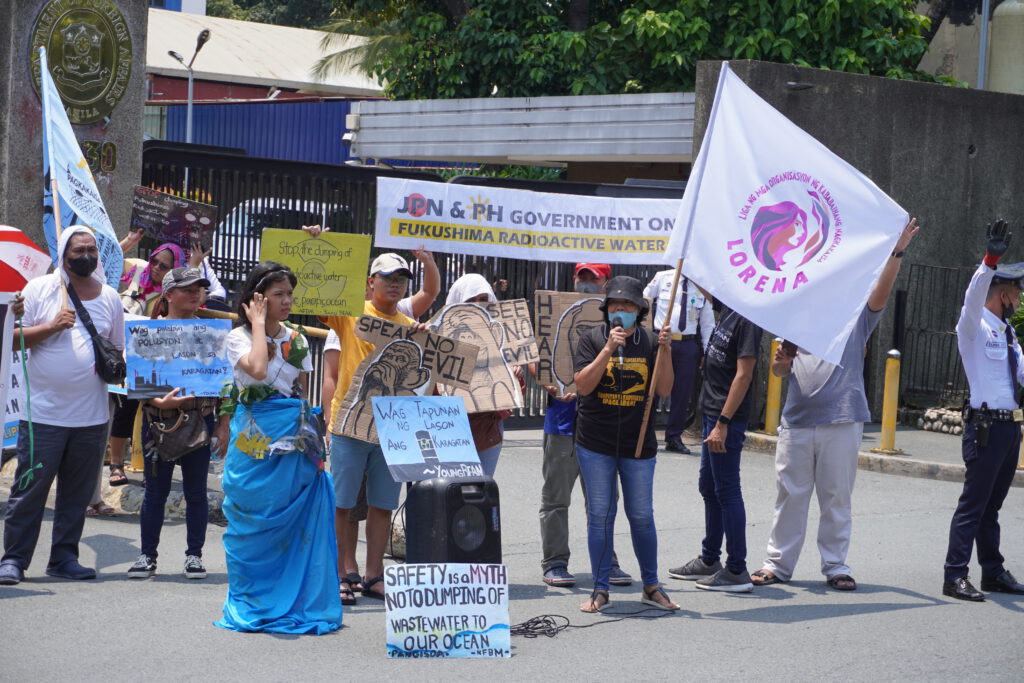
I’m on the bus, with Pablo – my good friend from the Philippines – and Veronica together from Manila to Bataan. Exciting, moving days await us. Veronica is awake and alert, writing countless messages on her cell phone. She asks me many critical questions about German climate and environmental policy, which I can answer more poorly than well. We still have so much to do, I think. I still have so much to do, and so much to learn.
A few hours later in Bataan, I met many more fellow community organizers that Veronica has trained and motivated to do their work. Many communities that Veronica has organized. Among them are siblings and fishermen Edlyn and Edwin, who work for the rights of the fishing community in Manila Bay and are members of Pagkakaisa ng mga Samahan ng Mangingisda sa Bataan or Pangisda Bataan.. And finally, Jochelle, a young environmentalist and Chairperson of Young Bataenos for Environmental Advocacy Network (YoungBEAN) who lives in a community that got an unwanted neighbor 15 years ago: a noisy, dirty coal-fired power plant in the middle of the rainforest that has been proven to bring various diseases into the lives of the residents. They are organizing to stand up for their rights to good health.
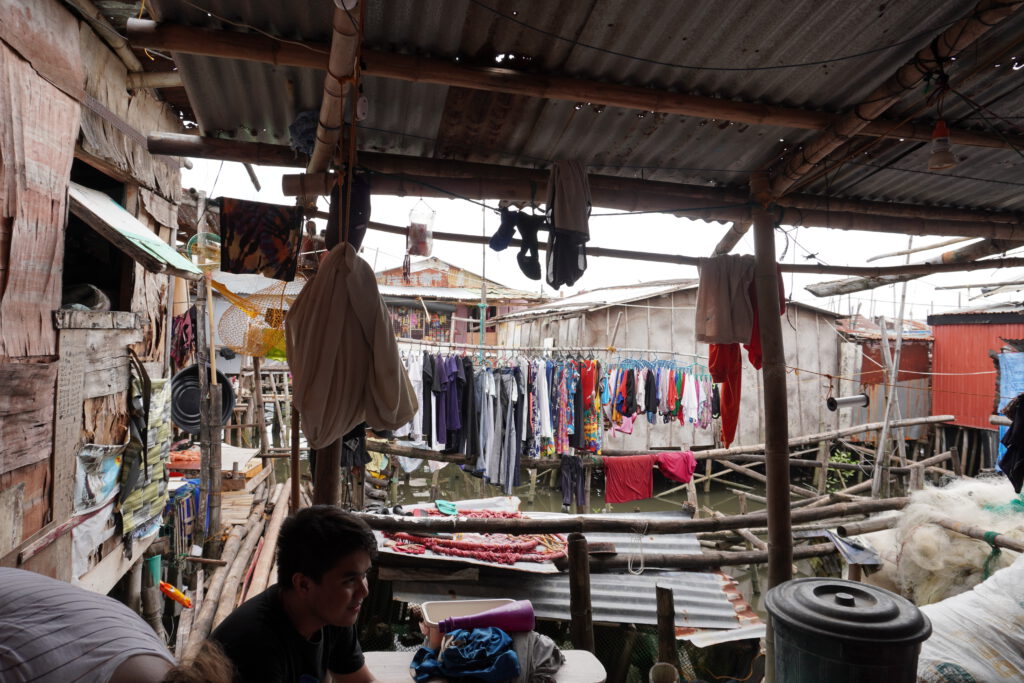
In the fishing village, we balance from one bamboo trunk to the next with Edlyn and Edwin, who guide us through the village of 1000 inhabitants. It creaks under my feet, we are about 2 meters above the water. The whole village, like Venice, is built on the water. Sometimes I climb the steps. I can barely keep up, but how do the little ones and the old people manage this balancing act? They are used to it, says Edlyn with a friendly smile.
Due to the various interventions in Manila Bay, Edlyn, Edwin and all the others in the village have not been able to live carefree from fishing for a long time, they wish for the healthy Manila Bay of 20 years ago. Just a few days ago we are experiencing a typhoon in Luzon and the waves are so strong that it is too dangerous to go out. The waves are just too high. With the climate heating up, the water is heating up and the fish are much further out where it is even colder. For Edlyn and Edwin, that means more time spent and more gas. And ultimately less catch, because the coral reefs, the underwater rainforest, and the home of so many fish, as they figuratively explain, are also threatened by the climate crisis.
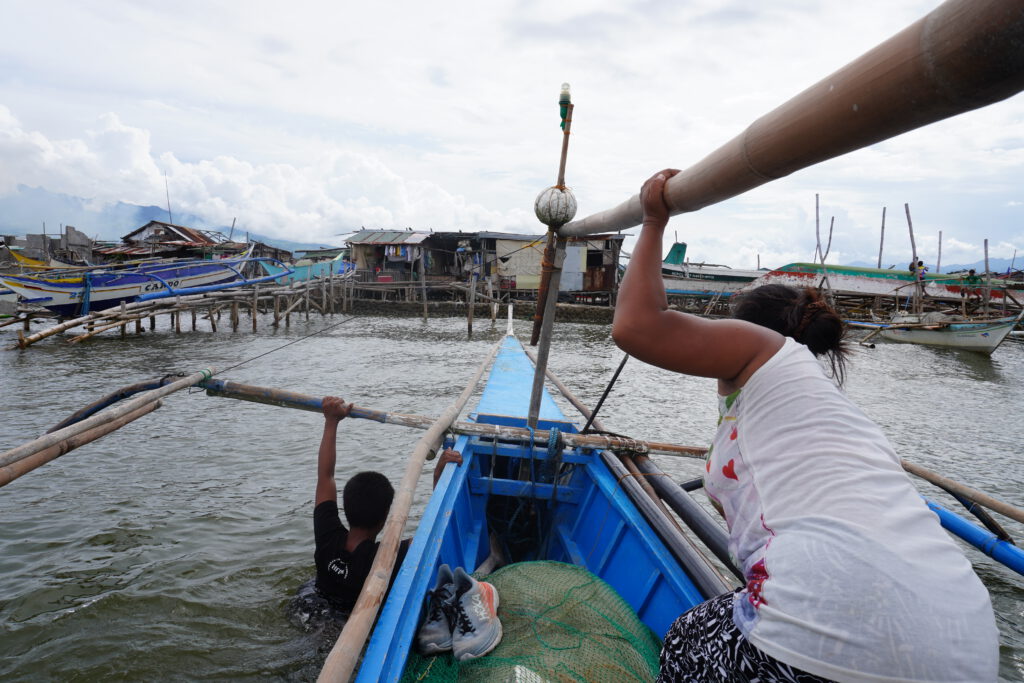
For Edwin and Edlyn, nothing less than their identity is at stake with the environmental crises. Being fishermen is our life. In the background, chickens cluck and karaoke music blares. The ocean is our life, we are all watermen and only feel comfortable here, Edwin jokes. The ocean doesn’t expect us to have a diploma or English. Being fishermen is the only livelihood we have. And we are poor – but so important, the food security of the Philippines depends on us, after all. If we can’t catch fish anymore, how are we going to pay for medicine and school supplies for our kids? Edwin meanwhile works a few weeks a year in construction, Edlyn sells lipsticks. I hear their story and I am close to tears. Being fishermen is our life, Edwin keeps saying.
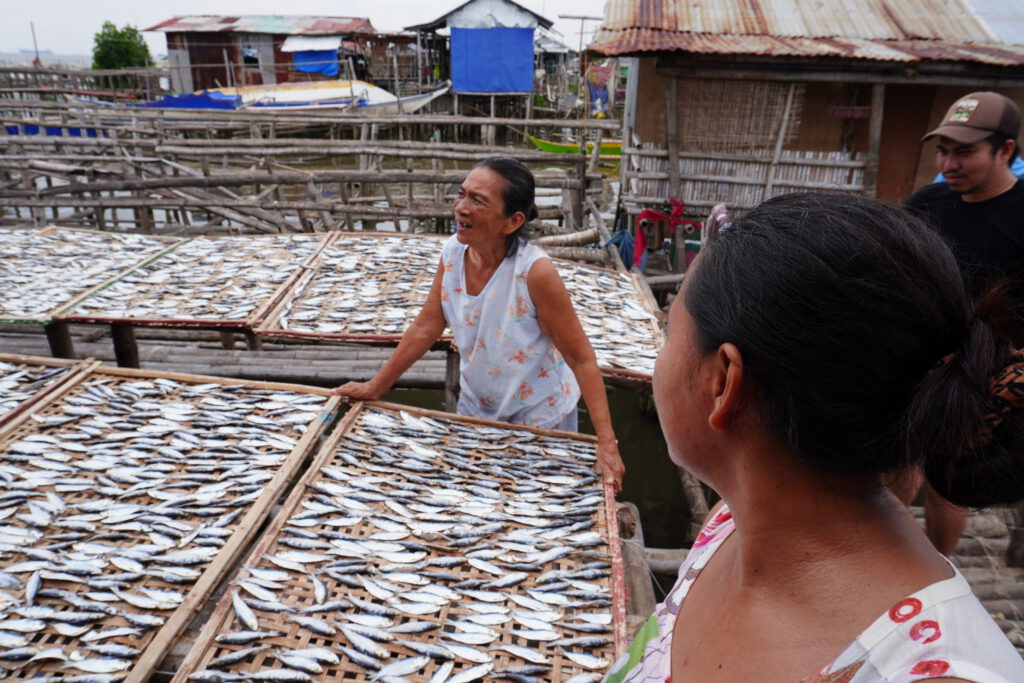
The power plant looms behind the trees, but its hum can be heard loudly throughout the village, keeping people awake at night. Together with Pablo, Veronica and Jochelle, I stand on a rocky outcrop and face the power plant. Coal dust lies thick on the houses throughout the village. With Veronica’s help, the community has managed to document the drastic impact on their health and send it to the World Bank. In a few days, a man from the World Bank will get his own picture. Due to the heavy rain, the meeting is postponed.
Hopefully not completely canceled, I think.
Before the trip I often read the motto “Give voice to the voiceless”. It seems to me a heroic goal, an ideal – but how realizable?
In Europe, we are searching in vain for “social climate protection” and fail to reach more groups of society and to really consider their interests.
But Veronica has lived it, every day, for 29 years. She could bask in her successes, take well-paying jobs in NGOs, and bristle with great self-confidence. Instead, she deliberately stands two steps in the background and in solidarity behind rather than in front of the red curtain, giving the stage to those who have been deprived of the microphone for decades.
She is unagitated, calm, interested, and empathetic. And just like her fellow community organizers, she puts her life on the line with her work. Because the government and corporations know that nothing is as powerful and persuasive as an organized civil society headed by the poor, the oppressed, and the vulnerable who speak up and unite.
Veronica made me realize that there is still so much that I can do better. What exactly have I learned from Veronica? And what can CEOs, politicians and activists in Germany learn from Veronica? Here is a small selection.
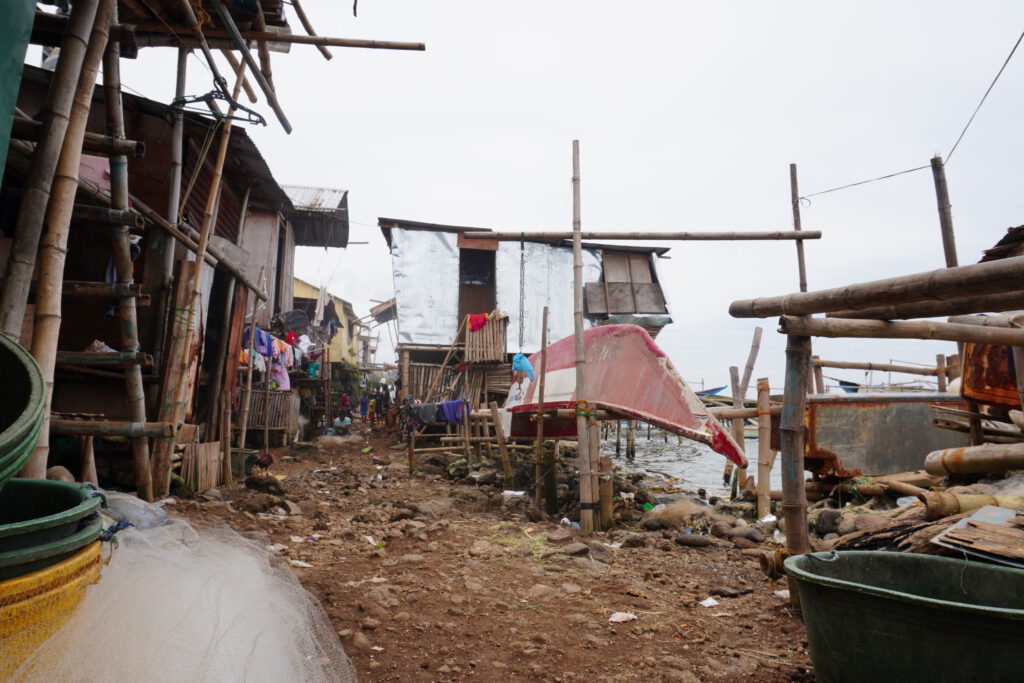
Insight #1: Leadership needs no ego
Veronica and I are standing in the women’s bedroom shortly after getting up. Veronica has been awake for a long time, even though she also worked late last night. Veronica has a big heart and an impressive ability to organize and inspire people. Educating about their rights and helping to build self-organized structures so that they can represent and contribute their interests in the long run.
I’m just nudging, Veronica explains. When the communities have built structures, know their rights and can represent them, then I move on and organize the next community. They don’t need me as much then. It’s a matter of being less present then, but I’m still available if they need me. I listen very carefully to how she describes her role and her goals. I can learn so incredibly much from you, I think, and try to soak up all that she explains.
What if some community organizers behave selfishly for a change? Veronica looks at me a little incredulously. I remember all the people I know in Germany, and yet too often myself, who think primarily of our own interests, of our own advancement. An organization is not about our individual goals, it is about the goals of the organization – according to Veronica. If someone forgets that, we remind them. Ego has no place, otherwise, we simply won’t move forward as a community.
These are clear words that I have to let sink in. After all, I think: Veronica is right – and that’s exactly why so many organizations in Germany fail. Because we think too much of ourselves.
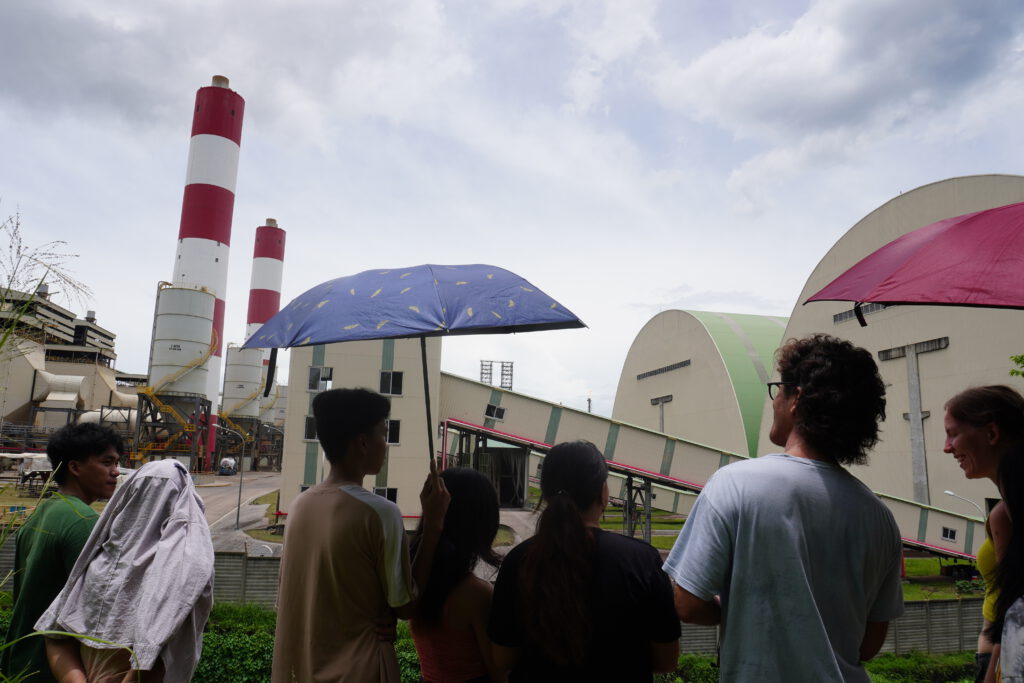
Insight #2: Community sounds like lively, happy scurrying
I am allowed to stay at the young people’s office for the days, also organized by Veronica. Around me are about 10 young people in their prime, between 18 and 25. They are enthusiastic, as passionate about the cause as I have rarely seen people.
Veronica also organizes students and youth. They present us with such clarity and soundness an overview of all the environmental issues that matter in Bataan – and all of which directly affect them and their families themselves. Highly professional. Organizing is their career, it’s their calling, Veronica says in a clear voice. They are needed. Of course, they could take other jobs after graduation, but then they wouldn’t be able to be there for the community.
Their name is Young BEAN. They do not only do educational work in the universities and schools, but also lobby in university politics as well as leadership trainings to further educate student organizers, and combine all that with very practical actions like planting mangroves, which can remove considerable amounts of carbon dioxide from the atmosphere.
And they’re a real team. My parents don’t think much of activism, says young Jochelle. They’re worried that I’m putting my life at risk. And these worries are justified, I now know. Because activists like the Young BEAN are classified as “terrorists” by the state, receive so-called “red tags” and are criminalized. The greater the resistance, the more important it is to have a lively and happy community, I learn. Because how else could these young people go on? How could they get up every morning at sunrise and go to bed late at night?
Every morning I trudge into the kitchen a bit exhausted, expecting tired faces.
Instead, there’s a fun buzz in the air. It smells of purpose, of commitment, of real passion. The young people are giggling, laughing – and working hard. I’m impressed. This is the kind of team culture every leader in an organization probably wishes for. And it works, seemingly almost by itself, when people in a real team stand up for their own existence and that of their communities.
What if, as in Europe, it is not or not yet a matter of survival? Then it is even more important that all team members remind themselves every day again of the importance they have with their commitment to the well-being of the community. Practicing empathy and compassion and doing all that is possible out of genuine solidarity with good friends where existence is at stake (#1 Climate Justice as an Act of Friendship).
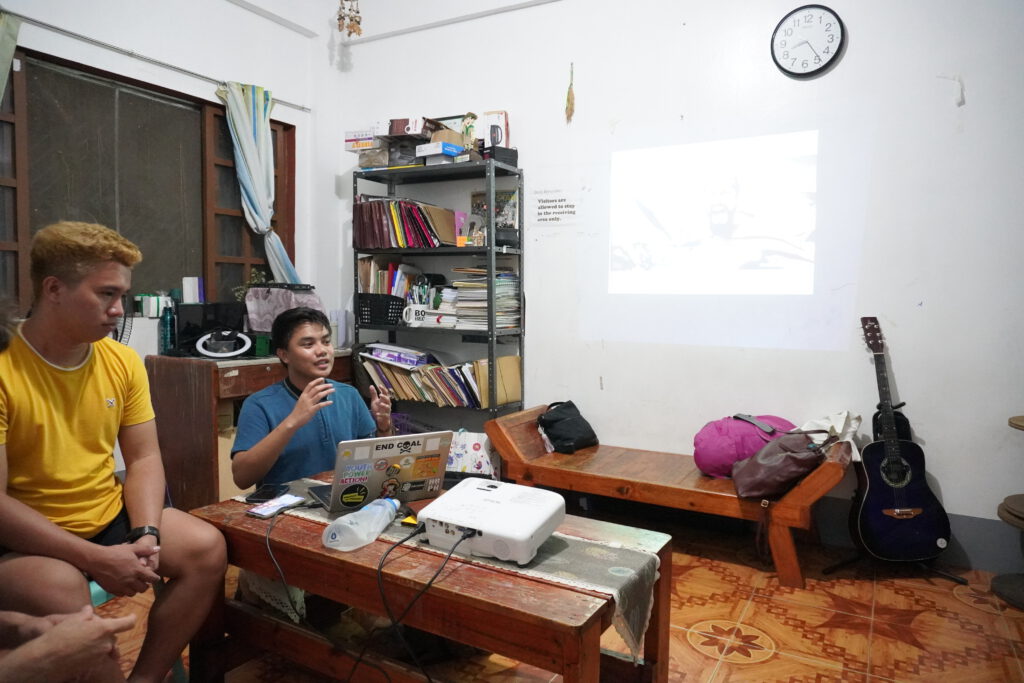
Insight #3: It only works with all sectors together
In every community, in every municipality of Bataan, we have multiple sectors that we organize: Women, students, fishermen, farmers, workers, drivers, urban poor – and sometimes indigenous people, Veronica summarizes to me. These are all frontline communities that we empower.
What front liners do you have in Germany? I’m thinking and I’m not sure what to answer. Of course, in Germany we are all affected, but differently than here.
In Germany, we shy away from thinking about multiple crises of sustainability together. Racism, classism and climate don’t belong in one campaign, otherwise, we’ll hang people out to dry – I’ve heard that so often in recent years, even from people I otherwise hold in high regard. Yes, maybe that complicates it. And at the same time, the abstract word “sustainability” in the 17 Sustainable Development Goals of the United Nations only becomes really tangible and meaningful when it comes to the very concrete living conditions of the very ordinary people in the population.
When it comes to women who, due to the climate crisis, lack the income from fishing to send their children to school. When workers can no longer stand it in the hot factories and when they can no longer drive to their place of work during floods. When already young people get asthma because they live next to a coal-fired power plant and have no money to move to another place.
These sectors each have community organizers who talk to each other regularly about concerns and problems in the community, Veronica explains further. And then we get together once or twice, depending on the need, multi-sectorally and exchange ideas. And the workers then advocate for the concerns of the boys, the boys for the fishermen, and so on – because in the end everything is interrelated.
We bring the communities’ interests into meetings with local governments so that their voices are really heard. But that’s not where the work stops, Veronica says. We need to bring community voices to the United Nations, to European governments, and to financial institutions like the World Bank or its private subsidiary International Financial Corporation.
My takeaway is that we should also know in Germany who our frontline communities are. Who in our country is already directly and most affected and least heard? And who will be in the future?
With the days in Bataan, I understood that the climate crisis is not a singular crisis that we have to solve. Here in the Philippines, we can see for the whole world how the different systems are interconnected: Education, gender, poverty, nationality, biodiversity on land, in the air and in the oceans, climate and energy – all these cannot be separated. The stakes need to be local, national, and ultimately global.
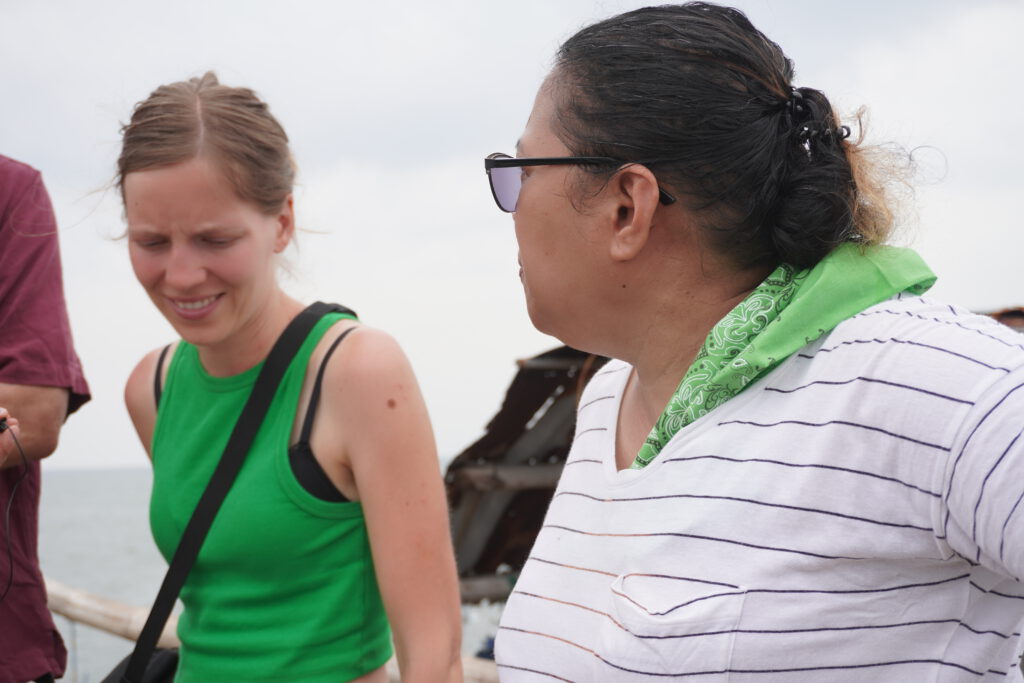
Interview with Veronica
Want to dive deeper into Veronica’s world? In this interview, she answers 8 more questions personally about how to build communities and movements, and how to empower and inspire others:
What is important to know about you and your life? Please introduce yourself briefly.
My name is Veronica, but friends and colleagues call me Derek. I am 50 years old and I’ve been working in the community as an organizer for 29 years already. I am the eldest in the brood of 5. All of my siblings are married.
What drives you to volunteer full-time for 29 years to organize so-called frontline communities?
I came from a modest family. My teenage life was a struggle as my parent’s earnings were not really enough to provide for our needs at the time. I know what poverty means as it was my life story, thus, I can easily relate to people who are experiencing the same situation as mine. In any case, despite our situation, my idealism has motivated me to be involved in community-building activities as an active member of a religious youth organization organized by Jesuit priests in my community. So, this was my first experience in organizing. This experience has exposed me to community work which inculcated values of empathy, and solidarity to the community, and has developed my interest in community work.
In this community, we also survived the life-changing floods. I remember my first experience during the 1980s, I had to carry my younger siblings to the nearest evacuation center as the floodwaters were already waist-deep. In the evening, we transferred to another house and slept over until the flood had gone the next morning. I was in High School at this time.
At the university, I joined an organization called Zambal (Zambales Manila Alliance), it was an organization that supported the anti-coal plant campaign in Masinloc, Zambales. This was my first actual involvement in an environmental organization at the time. When I graduated from the university, I was invited to volunteer in an NGO called Zambales Disaster Response Network (ZDRN) that supported the victims of the Mt Pinatubo eruption, especially the Indigenous Peoples and farmers in Zambales dislocated by the eruption. The motivation then was simple: I’d like to help.
However, as I immersed myself in the community, my motivation also got deeper and stronger. I learned that just wanting to help wouldn’t be appropriate as the community themselves have their own indigenous knowledge, capacities, and abilities that helped them get through and thrive as a collective. Instead, it was the communities that I was able to engage that have taught me life-learning lessons that helped me cope up with the challenges I have experienced along the way. These lessons have enabled me to contribute as part of the collective community and has made me stay up to now.
29 years in community work I must say was not a walk in the park. Challenges are always there it doesn’t stop, instead they constantly reinvent themselves. But despite these challenges, I am still here. These challenges made my motivation grow even more profound, rooted in the common values and shared aspirations of every community, and sector with which I had the opportunity to help organize in the past.
Being an organizer of frontline communities can be exhausting, especially in the current context of the climate crisis. Having experienced the impacts, how it’s dehumanizing people’s lives in the Philippines, and how the people in power are addressing the problem, the situation could get from bad to worse. That’s why the community’s impact must be at the forefront of the struggle to stop the worsening climate crisis.
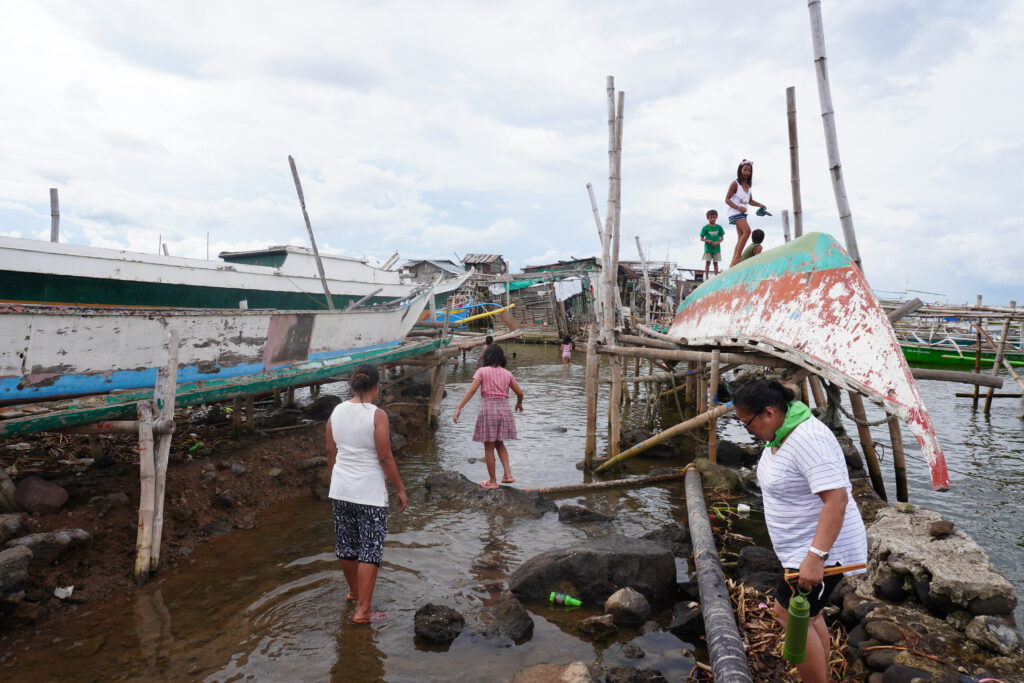
What things do you sacrifice to be a community organizer?
I really do not consider it a sacrifice. Because sacrifice sounds like a very sad term to me. I am not sad. In fact, the sense of fulfillment that I feel since day one of my volunteer work up to now is a source of happiness to me. This has given me an opportunity to work with the communities with whom I shared the same values and aspirations. I am happy that I was able to organize communities that have learned how to step up to defend their rights against the destructive businesses taking over our communities and destroying our community life and environment.
In any case, my only guilt trip is that I wasn’t able to provide my parents and my own family the chance in having a good life because I didn’t help them. It was a difficult, even a heartbreaking decision for me and I do not forget it. Indeed, it was a decision that I cannot forget.
What does true empowerment mean to you? What does empowerment also not mean?
To empower people is about enabling them to step up, collect their voices, and collectively defend their rights and their environment. Further, it is to create a shift in their mindset. They have to believe in their indigenous knowledge, abilities, and capacities to create a new system that prioritizes their rights, interests, and the environment. To realize this, they should feel relevant and be part of the community collective or organization.
Empowerment is not about dictating or imposing what the community needs in any situation. It is not about deciding on their behalf as if we are their spokespersons or their heroes.
We are here not because we want to be heroes, but we are building the collective because it is necessary if we want to win in this battle and be able to survive this current crisis. Our mission is to ignite and encourage people to take action.
How does community organizing work? What skills does it take?
I believe that as community organizers, we must know where we stand, what we stand for, and what our role is. How do we amplify the power we build? How can more people join in this movement building and shifting the power? It is also to challenge ourselves to trust the process, to weigh what matters most, to be one with our community, to know where we connect, to instill functional mechanisms, and to act in solidarity to be able to survive together.
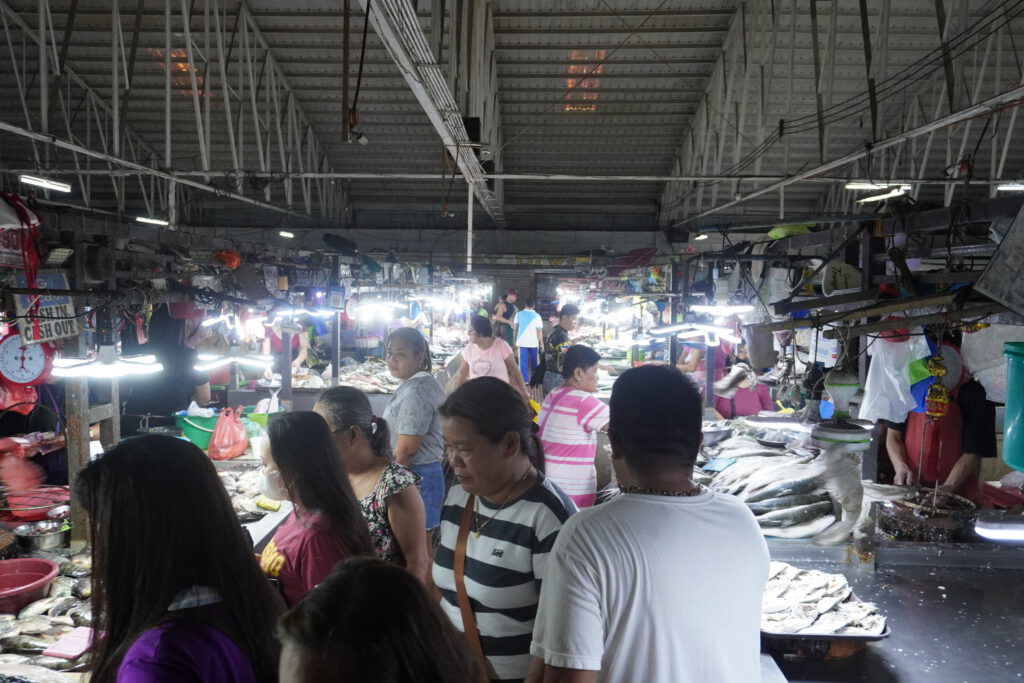
How do you create an organization that focuses on common goals instead of egoism?
As I have mentioned, we are no heroes. We are here not because we want to be heroes, but because we are building the collective because it is necessary to be able to win this battle and be able to survive this current crisis. Our mission is to ignite and encourage people to take action, and not for the sake of our ego. Besides, we are building a movement and not a fans club. To sustain this undertaking, we must consistently be aligned with the desires and aspirations of the community and the people.
The movement is built from a shared values and common aspirations, and not on satisfying one’s ego.
If we get obsessed with our own ego, what difference are we making? We should always remind ourselves to focus on the general interest and not on the particular. What matters is how we make ourselves matter in the journey of shifting the mindsets that move people and struggle for change.
You yourself are a great inspiration to so many people I have met on the journey. But who inspires you?
Really? (disbelief) Seriously, it is the communities, my colleagues in the organization, especially our young activist colleagues that give me inspiration. I feel a great sense of fulfillment when they also commit themselves to community work because it gives a sense of validation to my work and my worth in the organization. It means they recognize me as a colleague and recognize the efforts of the organization, it means that we are doing the right thing.
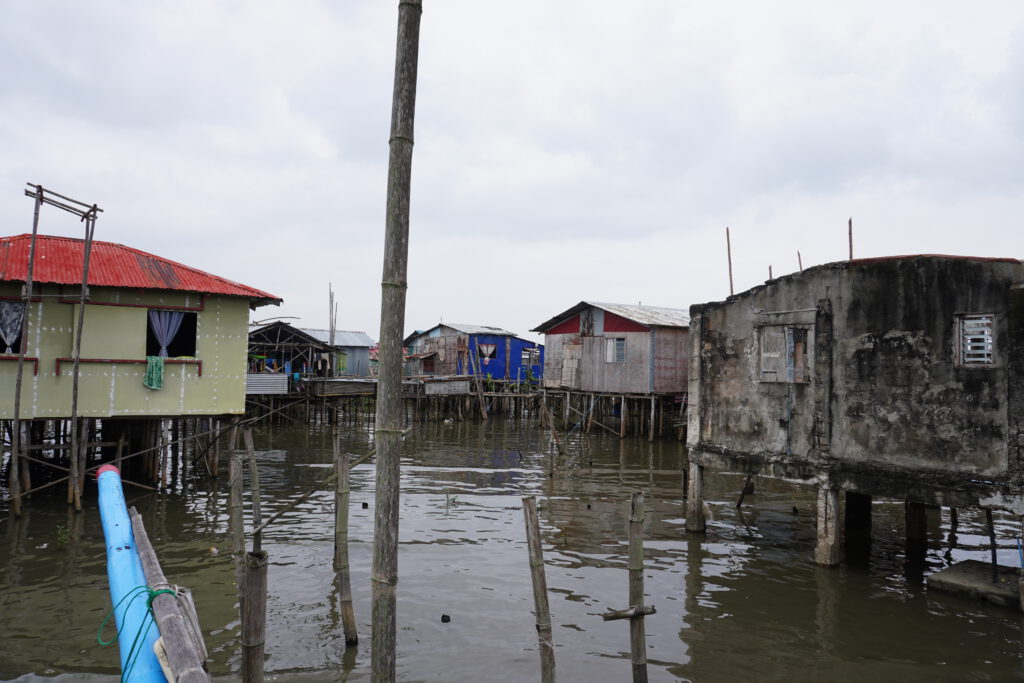
What would you like to give to people in Germany who are thinking about how they can move even more for climate justice?
Climate impacts are already creating harm to many communities thus, it is urgent that we take action now. Yes, our individual actions are important, thus, it is crucial to sustain that. But, climate justice can only be achieved when the system that perpetuates climate crisis is also changed, thus, our actions must be interrelated and should be part of the collective action. Climate impacts may vary, depending on where we stand right now, but it is only a matter of time until the ‘run away’ climate would take everything from us.
Fossil fuel companies are the greatest climate polluters yet are failing to take responsibility for the climate crisis it have caused by continuing with business as usual. They have yet to fully acknowledge that climate change is causing severe damage to our communities and resulting in human rights harm. Thus, wherever we are, we should start working together as part of the bigger collective in the struggle for climate justice.
We may be living in different contexts, but we only have one planet so our responsibility is the same — to preserve and protect it.
We may not belong to the most influential, who pulls the strings and dictates the people in power or governments to do policies that disregard the welfare of the environment and human rights, but together, as a collective, as one community, we can transform our individual strength into concrete power that can cut the strings that move us to anywhere they like.
We are the people and power resides in us.
Want to spread Veronica’s story?
Veronica’s story touched you and you feel like sharing his experience with many more people?
Make sure to also stay connected with us on Instagram, LinkedIn, Twitter and the Telegram channel, where a summary of the key learnings in the form of digital postcards will be incoming every week. By reposting, you are giving a stage to a voice that is rarely heard. Thank you!
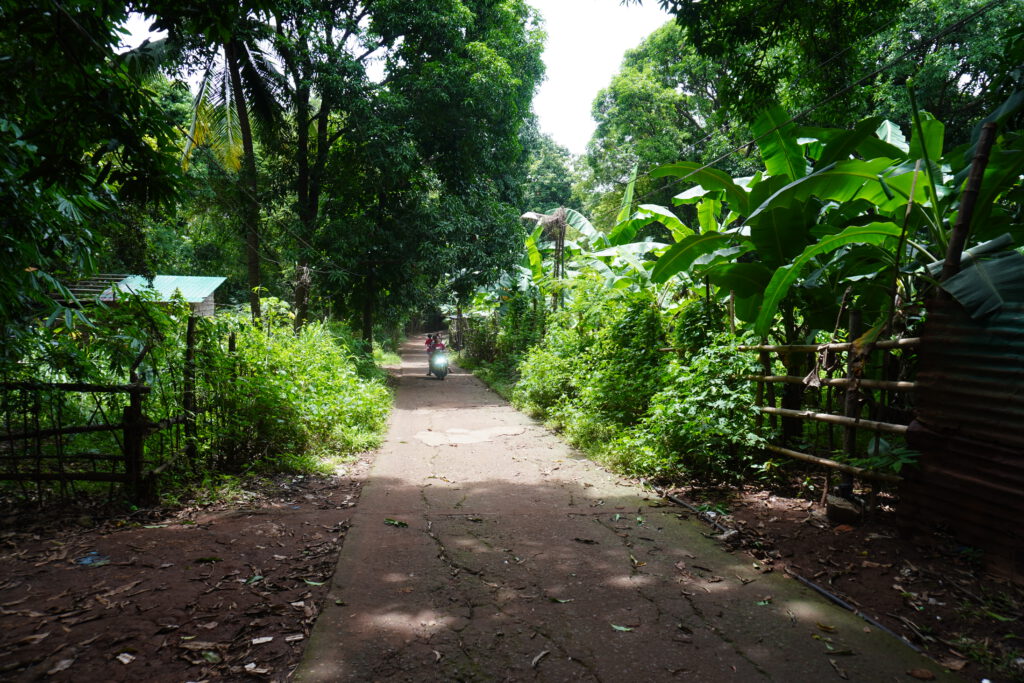
Want to learn more?
You have not subscribed to our newsletter yet and don’t want to miss any news? Then subscribe to our newsletter now!
Want to train your own tranformation skills?
You want to develop your own transformation skills with keynotes, trainings, consultations or bring these skills into your organization? Then feel free to browse through our ClimateMind offerings, because our mission is to bring climate psychology and climate justice into politics and business. Then browse this webpage now!

